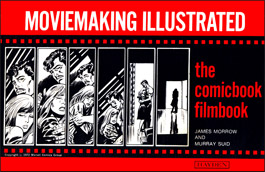If you’re a new director, you might not have much experience working with actors. The first thing you need to know: Actors are sometimes strange, weird creatures. I speak from personal experience. I was an actor before I was a filmmaker.
As a novice director, the chances are that you’ll be working with novice—even completely untrained–actors You can certainly get good performances from them, but you’ll need to give them more help than if you were working with experienced talent. Here are a few suggestions for getting the most out of novice actors.
- Keep it simple. Actors will do almost anything to give you what you want. But you need to be clear with them, especially novice actors who are new to a film set. Most new actors think that high emotion is the key to good acting. However, this is film, and high emotion usually comes off as fake. To avoid that result, ask your actors to say their lines as they would in a confessional. Keep it small and quiet. This is important even if the character is dealing with anger. Understatement likely will be more effective than shouting.
- Create a safe set. The job of an actor is to open up their inner, most vulnerable selves and then bring that out and put it up on the screen. And they may need to repeat the performance a few times in order for you to get more than one angle. So actors need to feel safe and somewhat looked after. It takes a certain amount of trust that is up to you to create. If they trust you as the director, then they will give you gold in terms of their performance. They will make your film. But if they feel unsafe and distrustful of you or your crew, then the performances they give will not be honest and it will show in the final version of your film.
- Rehearse. Most novice actors need to be shown what to do. Whether you do this ahead of time or on the set, walk them thru the scene. The goal is to help them feel comfortable when you call “Action.” Show them what you want and how you want it. Let them have their own interpretation, but don’t be afraid of giving them a line reading. It often helps to say, “That works, but just to be sure we get what we need, could you try it this way?”Here’s a technique that I like: Without the actors knowing it, record the rehearsals. If actors don’t know they are being taped, they might give you a more relaxed and surprisingly good take.
About The Author:
John Montana is an actor living with his wife in L.A. and has begun to make short films. His most recent film, “Hungry” has been accepted into 24 film festivals all over the world. Check out his short film – HUNGRY at No Title Production Films.



 Previous post
Previous post
 Next post
Next post





